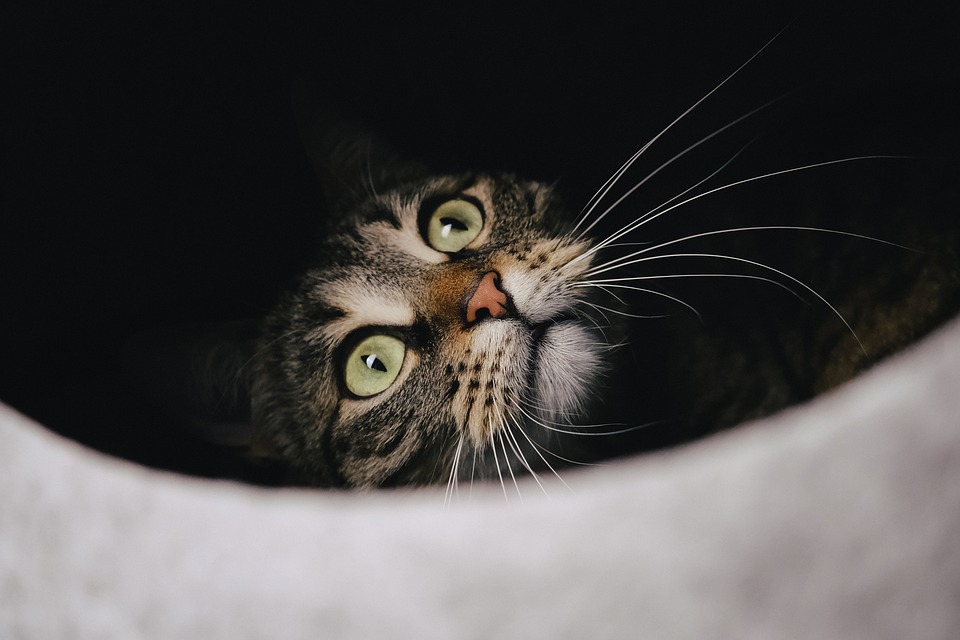Creating a Relaxing Sleeping Area: Tips for a Good Night’s Sleep
As any cat owner knows, our feline friends love their sleep. Cats spend an average of 12-16 hours snoozing each day, so it’s essential to provide them with a comfortable and relaxing sleeping area. A calm and cozy sleeping environment not only ensures your cat gets a good night’s sleep but also contributes to their overall well-being. In this article, we will explore some valuable tips for creating the perfect sleeping area for your furry companion. Additionally, we address frequently asked questions to help you better understand your cat’s sleep patterns and habits.
1. Choosing the Right Bed
The first step in creating a relaxing sleeping area for your cat is selecting the right bed. Cats have different preferences when it comes to beds, so it’s important to observe your cat’s sleeping habits. Some cats enjoy soft and plush beds, while others prefer a firmer surface. Look for beds that are machine washable and easy to clean, as hygiene is crucial for your cat’s health. Consider getting a bed with raised sides or a hooded design to provide a sense of security and privacy.
2. Location Matters
Cats appreciate having a dedicated sleeping area that is quiet, peaceful, and away from high-traffic areas. Choose a location in your home where your cat feels safe and secure, such as a quiet corner or a spare room. It’s best to avoid placing the bed near loud appliances or in areas with constant noise. Additionally, ensure the sleeping area is well-ventilated and away from direct sunlight or drafts, as extreme temperatures can disturb your cat’s sleep.
3. The Power of Comfort
Creating a comfortable sleeping area involves considering various factors that contribute to your cat’s relaxation. Ensure the bedding is soft, cozy, and free from any discomfort-causing materials. Natural fabrics like cotton or wool are excellent choices as they provide breathability and insulation. Avoid using bedding with strong odors or chemicals, as cats have a sensitive sense of smell. Adding a familiar scent, such as a piece of clothing with your scent, can also help your cat feel more at ease.
4. Stimulating Environment
While a relaxing sleeping area is important, it’s equally crucial to provide your cat with a stimulating environment during waking hours. Cats are natural hunters and need mental stimulation to stay happy and healthy. Incorporate interactive toys, scratching posts, and perches near their sleeping area, encouraging play and exercise. This will help expend their energy and promote better sleep quality at night.
FAQs:
Q1. Why does my cat sleep so much?
A1. Cats are crepuscular animals, meaning they are most active during dawn and dusk. As natural predators, they spend a significant portion of their day conserving energy in preparation for hunting. Additionally, cats have a unique sleep-wake cycle, which allows them to sleep in short bursts throughout the day.
Q2. How can I tell if my cat is getting enough sleep?
A2. Cats have varying sleep needs based on factors such as age, health, and activity level. Generally, if your cat appears alert, active, and maintains a healthy weight, they are likely getting enough sleep. However, sudden changes in sleep patterns or excessive lethargy may indicate an underlying health issue and should be evaluated by a veterinarian.
Q3. Should I wake my cat if they’re sleeping for too long?
A3. Cats are adept at regulating their sleep, and it’s best to let them wake naturally. Interrupting their sleep may disrupt their sleep-wake cycle and lead to irritability or behavioral problems. However, if you notice a significant change in your cat’s sleep patterns or if they’re sleeping excessively, consult a veterinarian to rule out any health concerns.
Q4. How can I prevent my cat from sleeping on my bed?
A4. If you prefer to keep your cat off your bed, provide them with an equally comfortable and enticing sleeping area nearby. Ensure their bed is appealing by following the tips mentioned in this article. Consistency, positive reinforcement, and redirecting their attention to their own bed will help discourage them from sleeping on yours.
Creating a relaxing sleeping area for your cat is an investment in their well-being. By providing a cozy and peaceful space, you’re enabling your feline friend to enjoy restorative sleep, resulting in a happier and healthier companion. Remember, each cat is unique, so observe their preferences, adapt accordingly, and enjoy watching them drift into a peaceful slumber.








